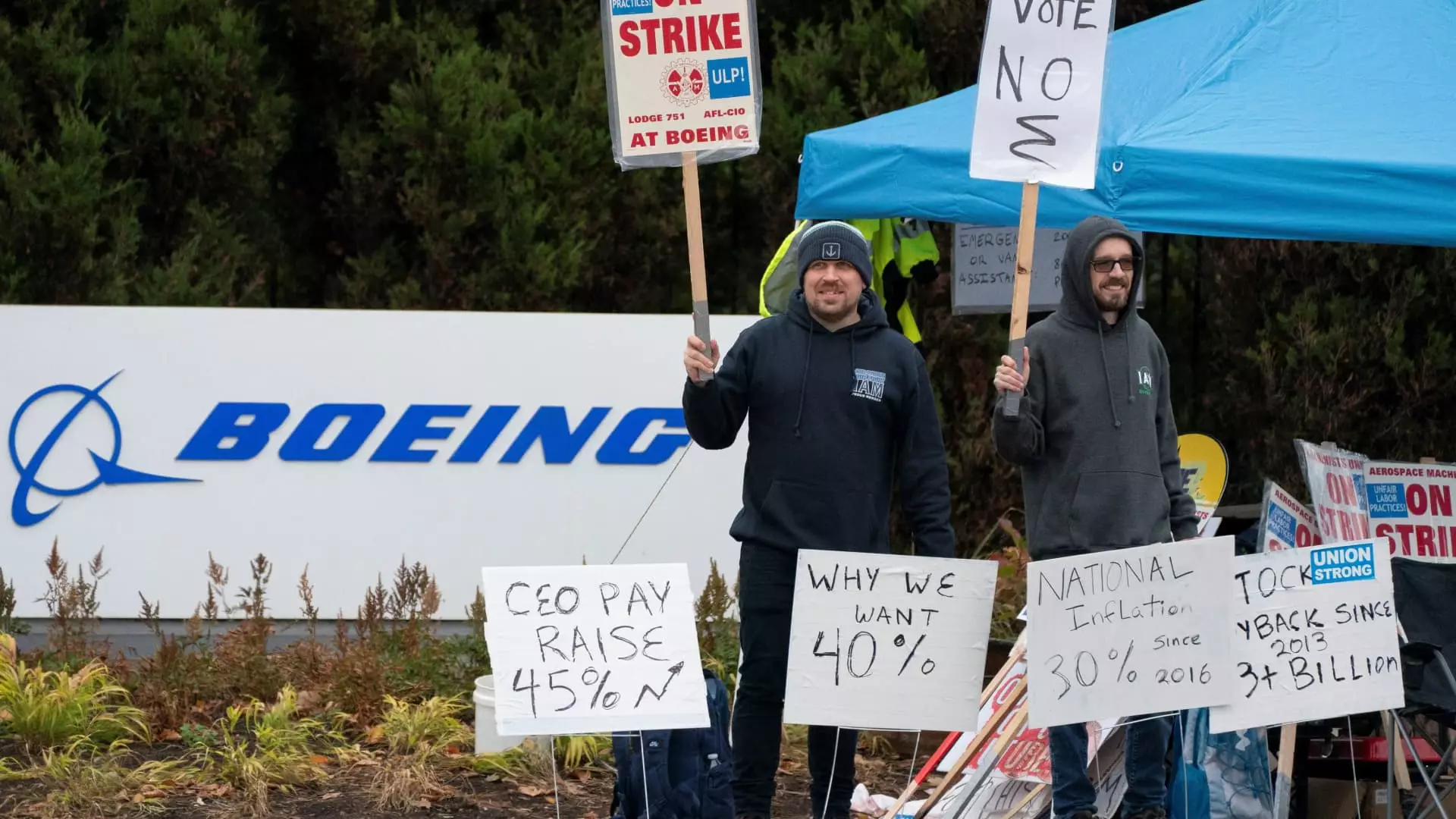After an exhaustive strike lasting seven weeks, Boeing and the International Association of Machinists and Aerospace Workers District 751 have put forth a new proposal aimed at resolving labor tensions and restoring production at one of America’s leading aerospace manufacturers. A vote among union members about the proposed contract is scheduled for Monday, emphasizing the urgency for both sides to come to an agreement. Following the strike that began on September 13, which saw over 32,000 machinists walk away from their jobs after rejecting prior contract offers, Boeing is under increasing pressure to stabilize its operations and curb escalating losses.
The new proposal represents a notable shift, increasing general wage raises to 38% over the next four years as opposed to the earlier offer of 35%. This new structure, when compounded, translates to nearly 44% in pay increases. Additionally, it provides workers with an option between a substantial one-time ratification bonus of $12,000 or a lesser bonus of $7,000 combined with a $5,000 contribution to their 401(k) plans. The union has highlighted the importance of ending the strike, arguing that prolonging it may result in less favorable offers in the future and further negatively impact both the employees and the organization.
The implications of the strike extend far beyond the immediate concerns of wages and contract particulars. Boeing, a prominent player in the U.S. export sector, has seen its production capacity severely hampered due to the walkout. The current negotiations have spilled over into the labor market, as evidenced by the recent U.S. jobs report indicating that the strike has adversely affected employment rates across the nation. This situation has garnered the attention of high-level officials, with the Biden administration stepping in to mediate discussions between the union and the company.
In a notable statement, acting Labor Secretary Julie Su met with Boeing executives and union representatives this past week, signifying the government’s interest in ensuring that labor disputes do not stifle economic growth, especially as the country approaches a critical presidential election. The ramifications of the strike are significant; President Joe Biden expressed support for the machinists, acknowledging their sacrifices over the years and stressing that they deserve a strong contract.
Boeing’s difficulties are compounded by its ongoing struggles with production issues and significant financial losses—over $6 billion in the last quarter alone. The company is experiencing unprecedented challenges as it tries to navigate through safety concerns and production flaws that have plagued its aircraft, including a recent incident that involved a door plug blowing out of a Boeing 737 Max 9 midair. Looking ahead, Boeing’s leadership is faced with the precarious balance of addressing workers’ needs while also strategizing on how to restore stability and credibility to the business. CEO Kelly Ortberg has emphasized the importance of unity among employees, urging them to focus on rebuilding Boeing, which historically has been a leader in aerospace manufacturing.
There are deeper structural concerns at play as well, particularly with the production of the 787 Dreamliner being relocated to a non-union facility in South Carolina. Such decisions have fostered resentment and anxiety among the workforce, who are pushing for more significant assurances that their jobs and the regional production footprint will not diminish further. The rising cost of living in the Seattle area, exacerbated by the competitive market enabled by technology giants like Amazon and Microsoft, has intensified calls for increased compensation among Boeing’s machinists, making it imperative that the company addresses these demands effectively.
A Critical Crossroad
As Boeing navigates this tumultuous chapter, the stakes are high for both the company and its employees. The resolution of this strike will not only impact the livelihoods of thousands of workers but will also serve as a defining moment for Boeing’s future in an increasingly competitive global market. Achieving a balance between labor satisfaction and corporate sustainability will be essential as Boeing seeks to emerge from this crisis stronger and more unified. The outcome of the upcoming vote will undoubtedly reverberate throughout the industry and could serve as a lens through which other labor negotiations are viewed in the future.

